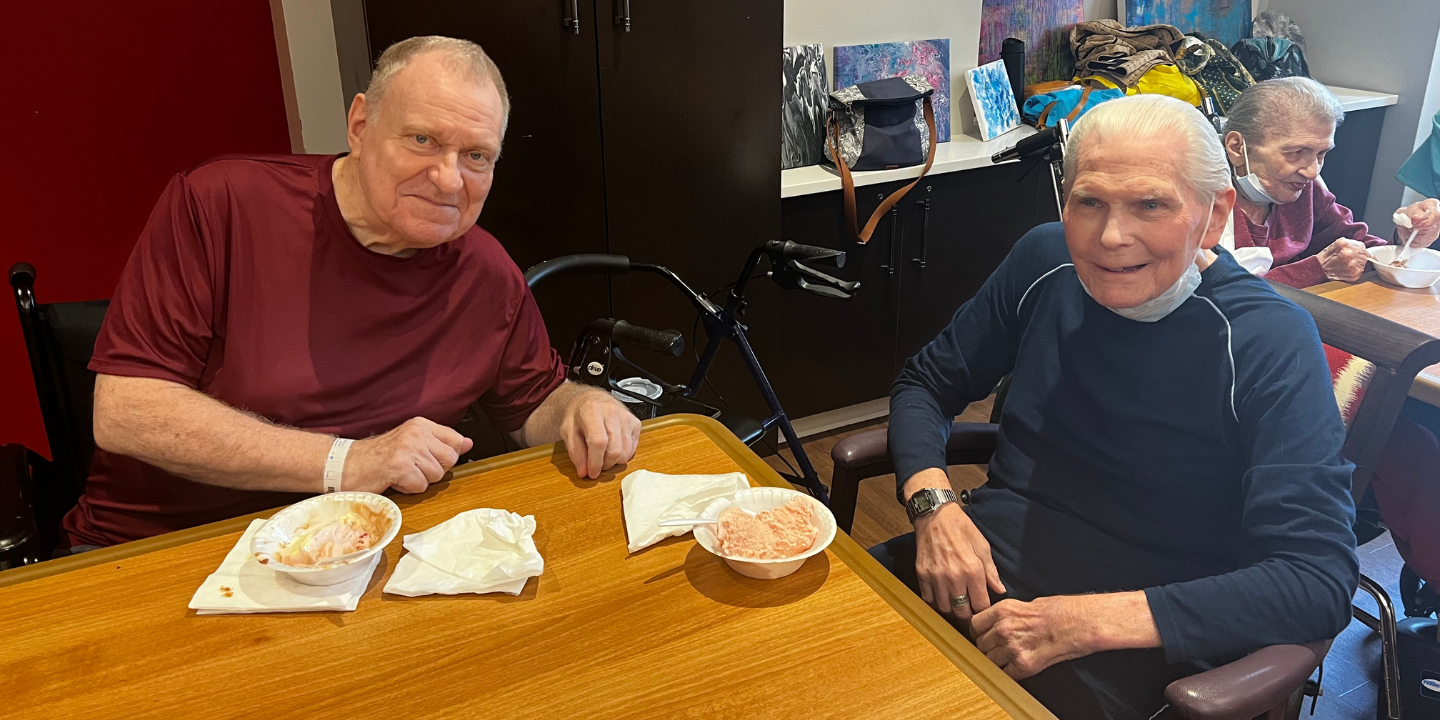A short term rehab stay can be a challenging experience for anyone, especially when it comes to experiencing feelings of isolation and loneliness. At the Methodist Home for Nursing and Rehabilitation, we utilize a combination of strategies to help patients cope with these feelings and make their stay with us as positive and successful as possible.
Understanding Isolation and Loneliness
While healing from surgery, illness, or injury during a rehab stay, patients may feel disconnected from their familiar routines, friends, and family.
Isolation refers to the physical separation from each patient’s usual social environment, while loneliness is the emotional distress that arises from feeling disconnected or alone.
These challenging emotions can impact a patient’s overall health and recovery process, which makes it essential to understand how to alleviate them.
Staying Connected with Loved Ones
Maintaining contact with family and friends is crucial for emotional well-being. Regular phone or video calls can provide comfort and support, helping patients feel more connected to loved ones.
We encourage family and friends to visit unless our facility is closed to visitors for a short period due to an illness outbreak. These interactions can boost a patient’s mood and provide a sense of normalcy during the rehab stay.
Engaging with Other Patients
Interacting with fellow patients can significantly reduce feelings of loneliness. Many rehab facilities organize social events and activities that provide opportunities to meet and bond with others who are going through similar experiences.
Sharing the journey with peers can create a sense of community and mutual support, making the rehab process feel less isolating.
Participating in Facility Activities
Rehabilitation facilities often offer a range of recreational and therapeutic activities designed to keep patients engaged and active. Participating in these activities can help patients divert their minds from negative thoughts and provide a sense of accomplishment.
Whether it’s a group exercise class, arts and crafts session, or a fun social event, these activities offer a chance to socialize and stay mentally stimulated.
Utilizing Mental Health Resources
Speaking with a therapist or counselor can also help patients navigate these feelings. They can offer coping strategies and techniques tailored to each patient’s needs.
Professional mental health services can make a significant difference in the overall recovery of short term rehab patients.
Setting Personal Goals
Setting small, achievable goals can provide a sense of purpose and focus during a rehab stay. These goals can be related to physical recovery, social interactions, or mental well-being. Achieving these goals can boost confidence and give patients something positive to look forward to daily.
Staying Physically Active
Physical activity is closely linked to mental well-being. Participating in recommended exercises and physical therapy sessions can improve mood and reduce feelings of isolation. Staying active also promotes physical recovery, making the rehab stay more productive.
Practicing Mindfulness and Relaxation Techniques
Mindfulness and relaxation techniques can be powerful tools for managing feelings of loneliness. Practices such as meditation, deep breathing exercises, and journaling can help patients stay present and reduce anxiety by supporting the mind-body connection. Incorporating these techniques into their daily routine can improve patients’ overall well-being.
Reaching Out for Support
Communicating feelings with healthcare providers and facility staff is crucial. They are there to support you and can offer additional resources or adjustments to your care plan to help you feel more connected. Remember, feeling lonely is a common experience, and you don’t have to face it alone.
How Can We Help You Heal?
Coping with feelings of isolation and loneliness during a short term rehab stay is essential for mental and physical recovery. We are here to help make each patient’s experience more positive and successful by utilizing these helpful strategies.
If you or a loved one needs help recovering from a recent illness, injury, or surgery, we would be happy to discuss your needs. Contact us today to learn more about our skilled nursing and rehabilitation services.

